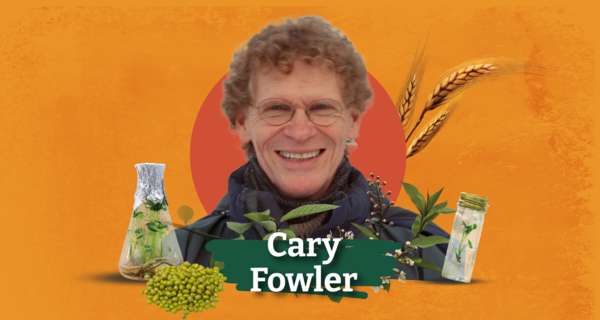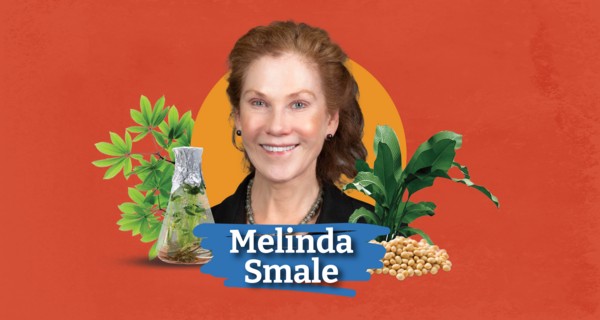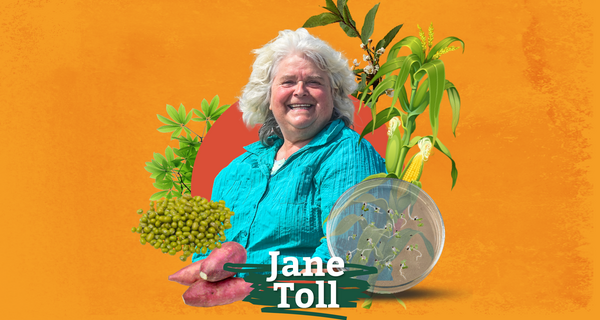Paula Bramel: Research Mentor Who Transformed Crop Diversity Institutions
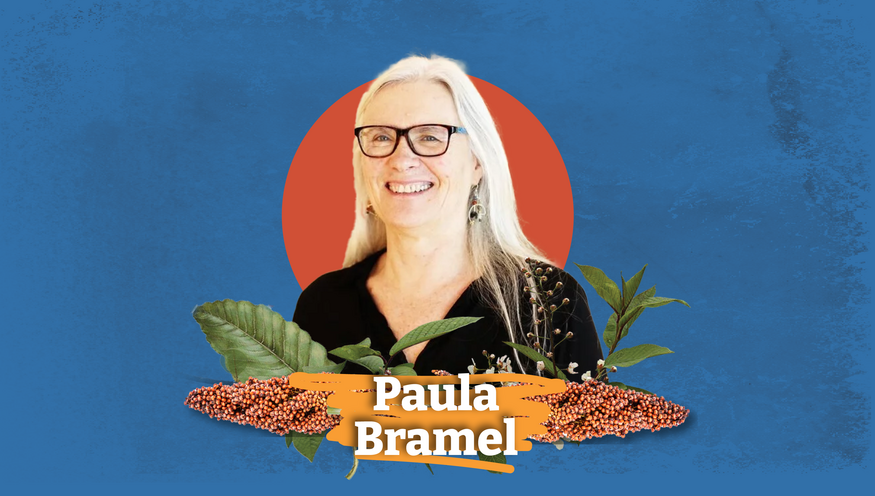
4 September 2025
In this edition of our Seed Heroes series, we pay tribute to U.S. scientist Paula Bramel, whose research, mentorship and leadership have been instrumental in building organizations and nurturing the next generation of agriculture scientists.
Paula Bramel knows the true value of diversity.
For more than four decades, the U.S.-born agronomist has championed it – in both plants and people – as a researcher, crop breeder, manager and mentor.
“We often think about crop diversity only in relation to improved varieties and using it in breeding programs,” she says. “We miss the exciting part, which is that diversity in crops is a result of diversity in people. It’s the relationship between crop diversity and farmers, history and culture that makes it so fascinating.”
Dr. Bramel has dedicated her career to shaping the research and organizations that use crop diversity to build a food-secure future amid the threats of climate change, loss of biodiversity, unsustainable agricultural practices, and outbreaks of plant pests and diseases.
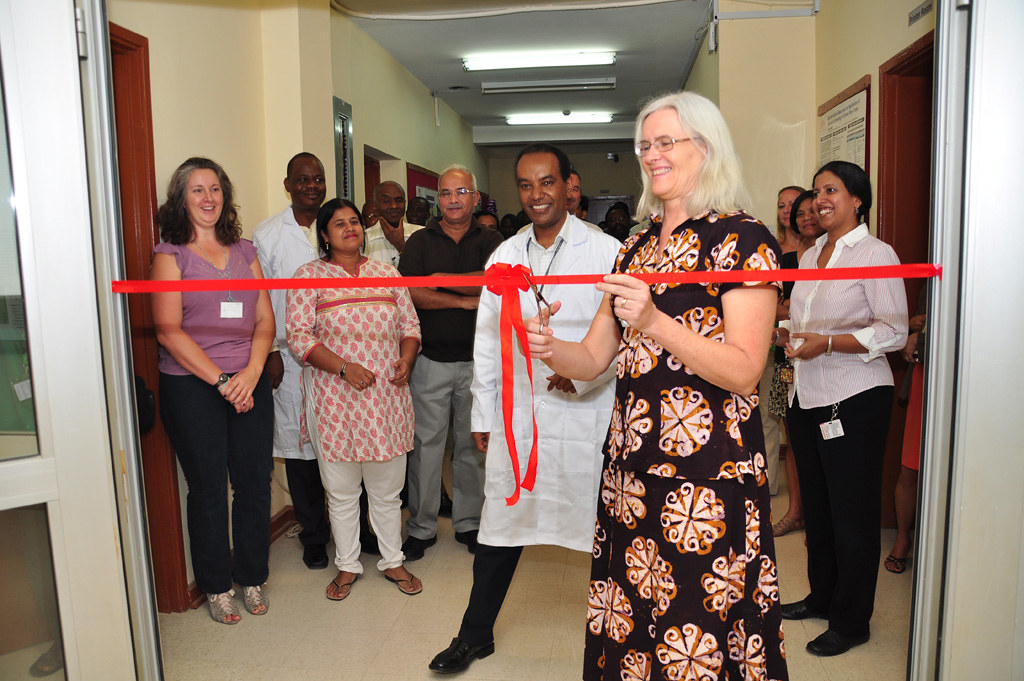
Paula Bramel cuts the tape to formally launch the IITA Bioscience Center on 21 April 2011 in Ibadan, Nigeria. Photo by Oliver Jeffrey/IITA
She spent 11 years breeding sorghum while working as a professor of agronomy at Kansas State University. Bramel subsequently dedicated more than 12 years to plant genetic resources conservation at the International Crops Research Institute for the Semi-Arid Tropics (ICRISAT) and the International Institute of Tropical Agriculture (IITA) in Asia and Africa.
Then, as deputy executive director of the Crop Trust, Bramel played a pivotal role in the organization’s history. She led its move to Bonn, Germany, in 2013 from its previous base in Rome, where it was housed within the headquarters of the Food and Agriculture Organization of the United Nations (FAO).
With a team of only seven people, Bramel helped establish the Crop Trust as an independent international organization in Bonn. As part of the leadership team, she helped put in place policies that made the Crop Trust fully functional in its new home in one year.
“It’s funny to think about where we started,” Bramel says. “The office wasn’t up and running back then, we didn’t even have Internet access. So, we had to operate out of people’s houses. And that was years before COVID. If you asked me how much experience I had to manage all of this, I would have to say none!”
In a prolific career as a teacher and researcher, Bramel has contributed to more than 70 refereed journal articles, seven books, and 38 book chapters. During this time, she also supervised 16 Master’s and Doctoral candidates, paying particular attention to encouraging women scientists.
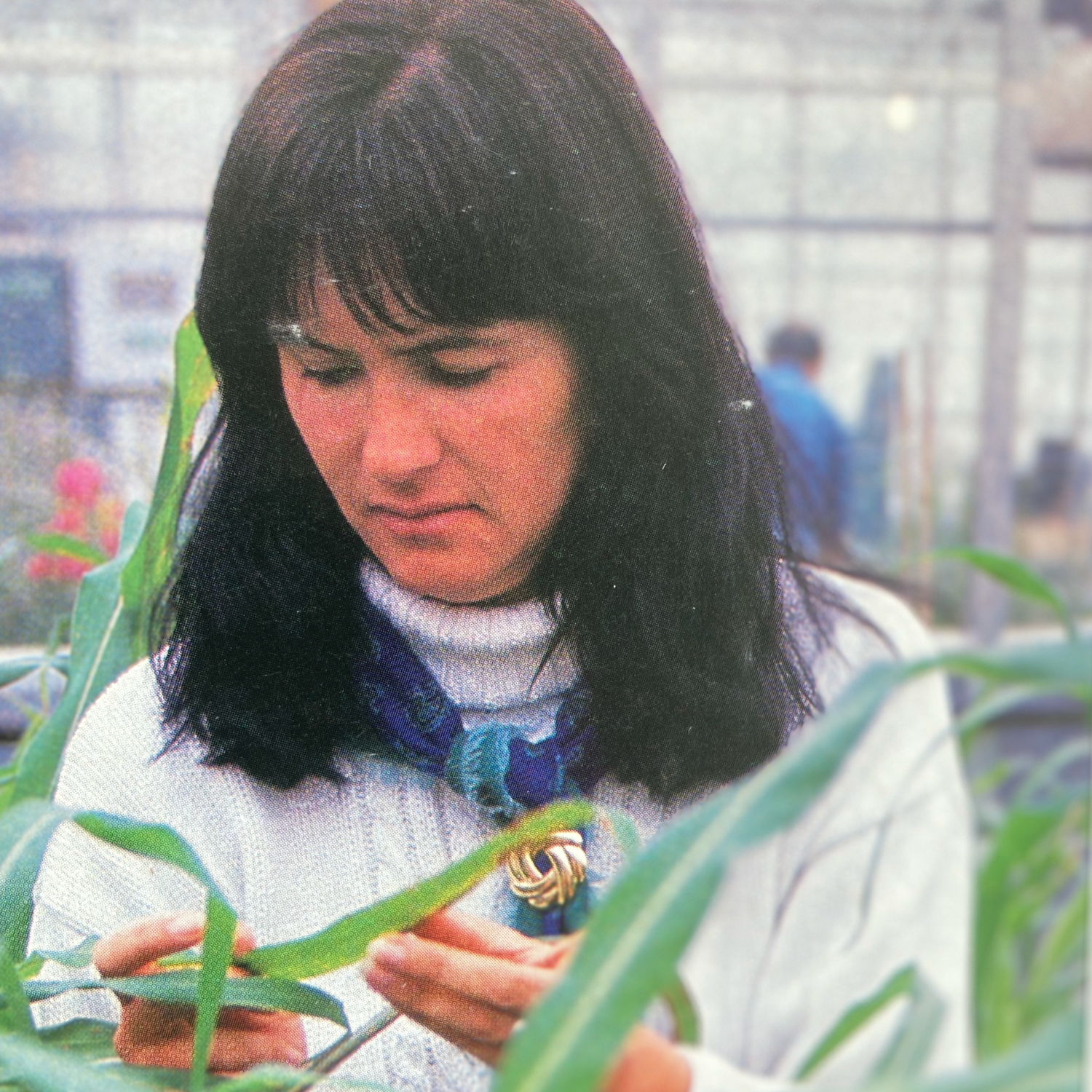
Paula Bramel on the cover of Kansas Farmer, photographed in a greenhouse examining sorghum leaves as part of a feature on her sorghum breeding program. Photo from her personal archive.
Early Years
Bramel grew up on a farm in Niantic, a small town in central Illinois. Her father was a research chemist who farmed on weekends, and her mother was a homemaker. Her uncle ran the farm full-time.
One of four girls in her family, plus a brother, Bramel showed an early interest in medicine, but later gravitated toward agriculture. This choice of career shocked her father, who was nevertheless supportive. Her uncle was less understanding, believing she wasn’t suited to agriculture because she couldn’t drive a tractor.
“I never learned to drive a tractor,” Bramel says. “But I really felt I needed to be more actively engaged in dealing with food-systems issues in the future.”
Inspired by Frances Moore Lappé’s book Diet for a Small Planet (1971) about food systems, agrobiodiversity and environmental crises, Bramel studied plant science. She earned a Bachelor of Science degree in agronomy in 1978 at Iowa State University and a Master’s in plant breeding two years later. Her doctorate, awarded at the same institution in 1985, focused on the wild relatives of pearl millet and involved research at ICRISAT in India.
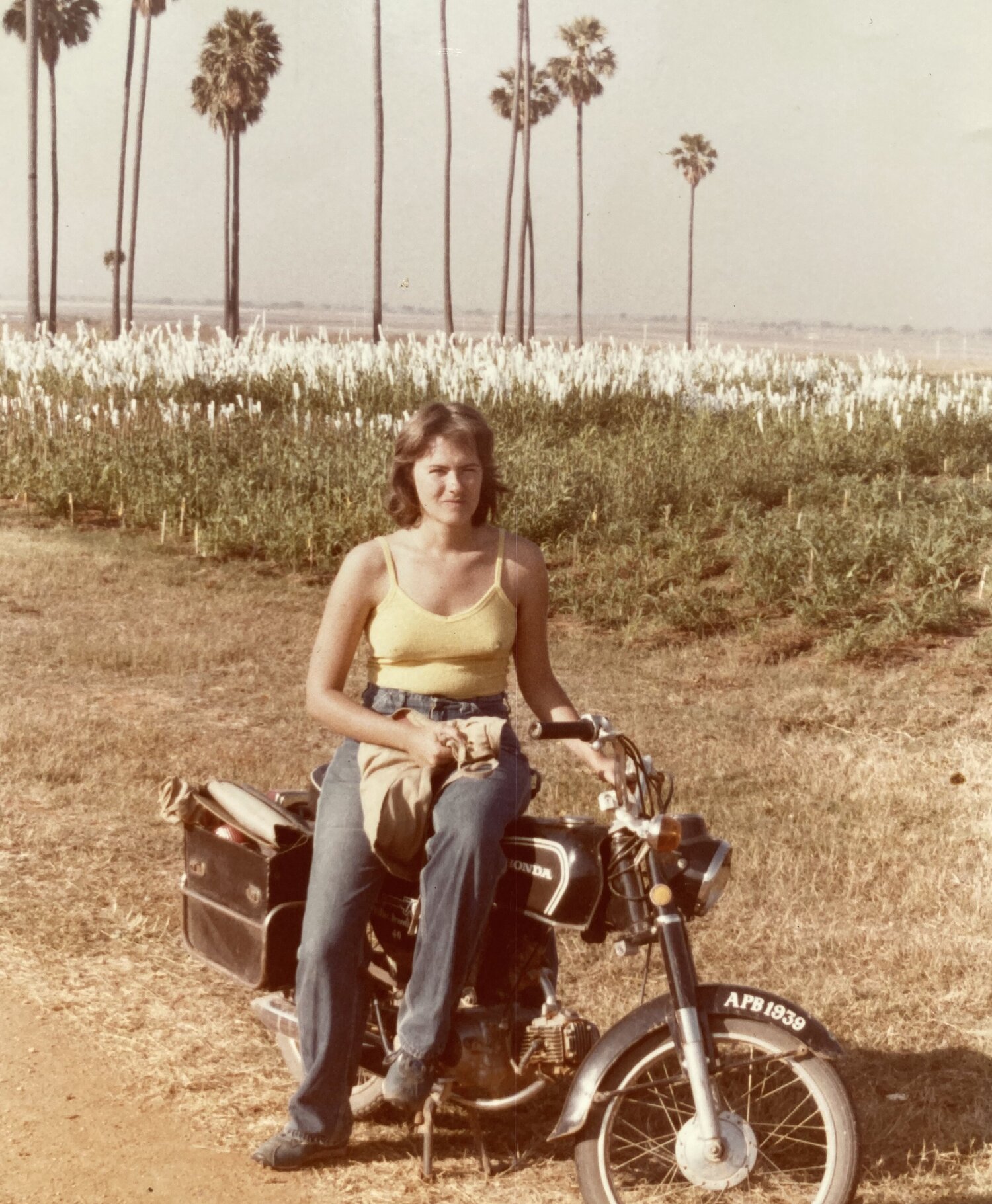
Photo from Paula Bramel's personal archive.
Overcoming Adversity
“Women succeed in this field because someone mentors them,” she says. “When I was at university, it was not easy for us to be in agriculture. There were only three women in the agronomy department during my undergraduate years. And we all ended up getting PhDs.”
Bramel credits several mentors for helping guide her career, Dr Ken Frey, her Ph.D. advisor at Iowa State University, ICRISAT Director-General Shawki Barghouti during the 1990s, and IITA Director General Peter Hartmann in her role as research director in the 2000s.
But it was Cary Fowler who inspired Bramel to move to the Crop Trust, where he was executive director. Influenced by his leadership, she learned from Fowler – a winner of the World Food Prize in 2024 – about the global aspects of crop diversity conservation and its cultural significance.
“His work demonstrated how important diversity was to people and to food systems,” Bramel says. “He feels very strongly about some things, and he’ll just keep saying them. I learned from him that it’s important to persist with the message.”
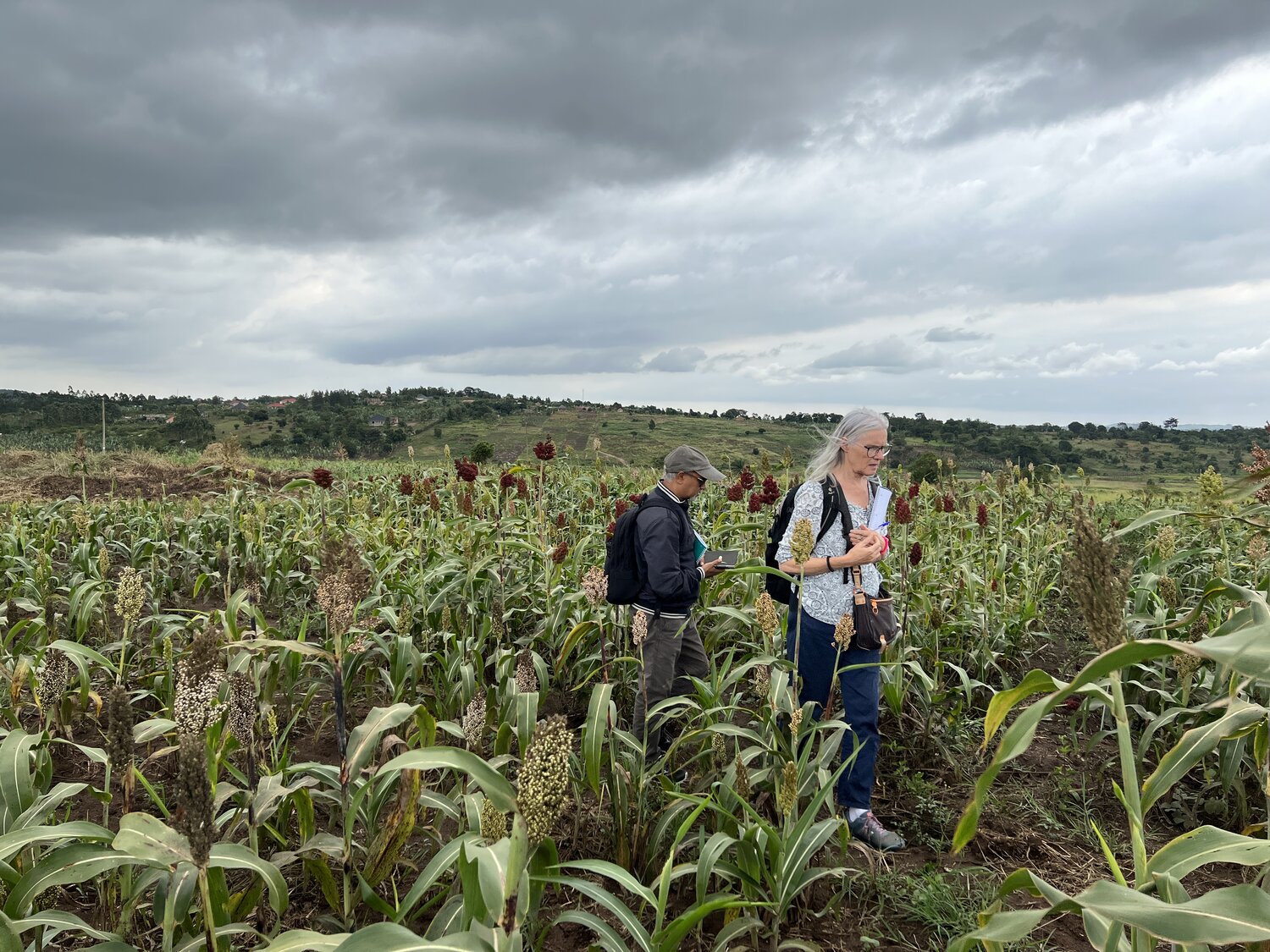
Crop Trust Legacy
Bramel wore many hats at the Crop Trust. As a member of the senior management team, she provided executive-level input on human resources, internal operations and programs. She also oversaw all contracts and grants and chaired the management team of the CGIAR Research Program on Genebanks.
Since leaving the Crop Trust, Bramel has been a consultant to the organization, leading the development of global crop conservation strategies for coffee, tea, apples, vanilla and others. She chaired external reviews of genebanks to help them improve their essential operations, while boosting efficiency and effectiveness. Beyond the Crop Trust, she also serves as Chair of the Board of the Irish Seed Savers Association (ISSA), an organization committed to conserving and promoting Irish heritage varieties.
“I always felt like I am here to help. To facilitate, move things along, and get people to where they want to be,” she says.
Lots of organizations and scientists around the world would agree.
The Crop Trust salutes the achievements of Paula Bramel. Because of leadership like hers, the organization has taken significant steps toward securing the future of food. Dr. Bramel inspires us in our efforts to fulfil the Crop Trust’s mission.
Timeline:
- 1978: Earns a Bachelor’s degree in agronomy at Iowa State University
- 1980: Completes a Master’s in plant breeding at Iowa State University
- 1985: Awarded a Doctorate in plant breeding and cytogenetics at Iowa State University
- 1985–1996: Professor at Kansas State University
- 1990-1996: Member of the Board of Directors at the Land Institute in Salina, Kansas
- 1996–2002: Various roles at ICRISAT, including director of Genetic Resources Division
- 2004–2012: Director and deputy director-general at IITA in Ibadan, Nigeria
- 2012–2015: Deputy executive director of the Global Crop Diversity Trust
- 2017-present: Consultant to the Crop Trust
- 2019-present: Chair of the Board of Directors for the Irish Seed Savers Association
Categories: For The Press, For Partners

